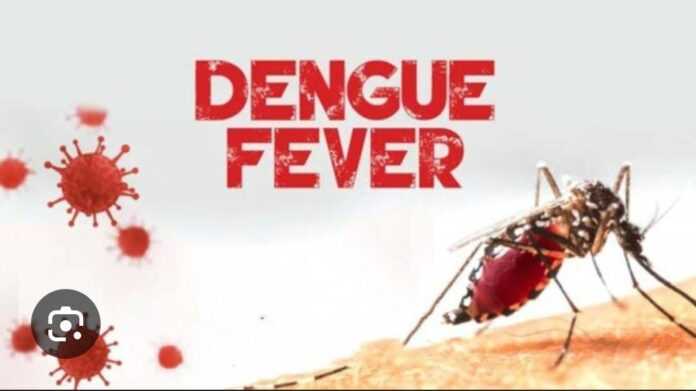Advertisement
The
Ghana
health
service
has
confirmed
nine
cases
of
Dengue
fever
in
the
Eastern
region.
The
service
in
a
statement
signed
by
the
Director
General
of
Ghana
Health
Service,
Dr.
Patrick
Kumah-
Aboagye
said
the
National
Surveillance
System
detected
unusual
cases
of
malaria-like
illness
in
some
districts
of
the
Eastern
Region.
These
cases
were
not
responding
to
recommended
antimalarial
treatment
regimens,
and
were
therefore,
managed
as
acute
febrile
illness.
Samples
from
patients
were
sent
to
the
Noguchi
Memorial
Institute
for
Medical
Research
(NMIMR)
for
testing
which
confirmed
positive
for
Dengue
fever.
The
nine
cases
which
have
been
confirmed
as
Dengue
are
being
managed
as
non-severe
cases
at
home.
Following
the
development,
a
team
from
the
national
level
made
up
of
Entomologists
and
Epidemiologists
have
joined
the
regional
team
to
undertake
a
detailed
outbreak
investigation.
About
Dengue
fever
disease
Dengue
is
a
viral
infection
that
spreads
from
mosquitoes
to
people.
Most
people
who
get
dengue
will
not
have
symptoms.
But
for
those
who
do,
the
most
common
symptoms
are
high
fever,
headache,
body
aches,
nausea,
and
rash.
Most
will
get
better
in
1-2
weeks.
Some
people
develop
severe
dengue,
which
can
include
bleeding
and
require
hospital
care.
In
severe
cases,
dengue
can
be
fatal.
Preparedness
measures
and
actions
being
undertaken
*
A
National
Emergency
Operation
Centre
(EOC)
meeting
has
been
held.
*
Alerts
have
been
sent
to
all
Regions
and
Districts
to
enhance
surveillance
for
early
detection,
to
sensitize
health
staff
and
provide
public
awareness.
*
An
enhanced
surveillance
has
been
initiated
*
Public
education
on
signs
and
symptoms
and
prevention
is
ongoing
*
Entomological
Assessment
in
the
affected
areas
is
being
undertaken
Treatment
of
Dengue
Treatment
is
mainly
supportive
care
with
re-hydration
(lots
of
fluids),
pain
relief,
a
lot
of
rest
and
other
measures.
There
is
no
specific
medicine
for
its
treatment.
How
does
it
spread
The
spread
of
Dengue
is
through
the
bite
of
an
infected
Aedes
mosquito.
Preventive
meausres
Avoid
and
protect
against
mosquito
bites.
Dengue
transmitting
mosquitoes
bite
during
the
daytime.
Individuals
must
protect
themselves
from
mosquito
bites
by
doing
the
following:
*
Wear
full
sleeve
clothes
and
long
dresses
to
cover
the
limbs
Use
of
mosquito
repellent
is
helpful.
*
Use
of
insecticide
treated
mosquito
nets
–
to
protect
babies,
old
people
and
others,
who
may
rest
during
the
day.
*
Cover
and
drain
water
from
coolers,
tanks,
barrels,
drums
and
buckets
etc.
*
Remove
all
objects
that
have
collected
water
from
the
house
*
All
stored
water
containers
should
always
be
kept
covered.
The
public
is
urged
to
avoid
self-medication
as
health
authority’s
work
with
their
Partners
to
contain
the
outbreak
and
limit
the
impact.


